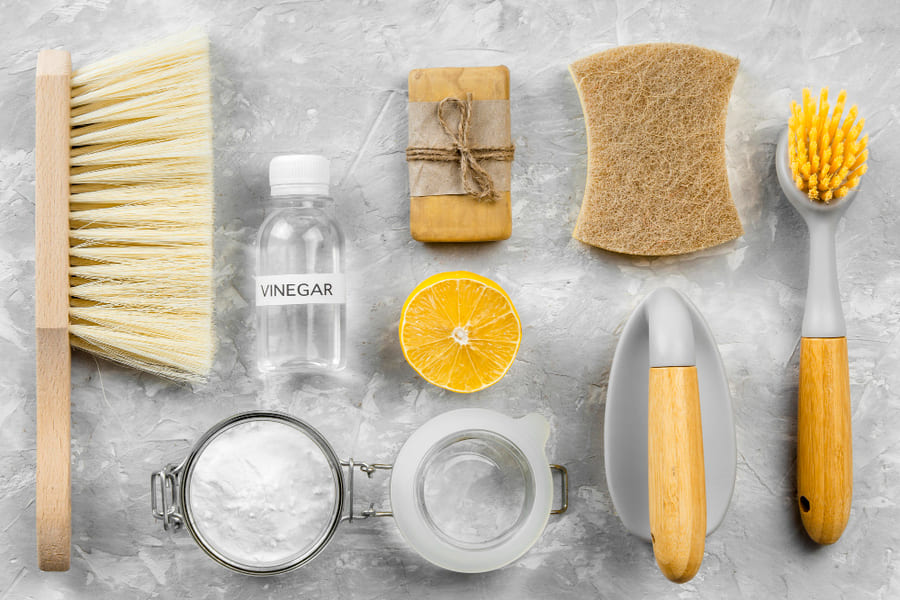Each time you open a spray bottle from under the sink, be careful you are not doing more than introducing a pleasant fragrance into your home. Many popular cleaning products have unseen toxins that can irritate your lungs, exacerbate your skin, and remain for some time on surfaces after wiping.
Making your own cleaning products is easy! With just a few ingredients, most of which you likely already have lying around your house, you can whip up your own cleaning products that work just as well (if not better) than what you buy in the store, and save some money, your health, and the environment!
Having store-bought cleaning products is replaced with DIY cleaning products could save you 75% off your cleaning costs, reduce your and your children’s exposure to toxic chemicals that are dangerous for your family and pets, and help reduce plastic waste with a reusable glass container.
In the following article, you will learn about why commercial cleaning products may cause you more harm than good; the benefits of DIY products; a rundown of essential ingredients; and five simple recipes to get you started.
Benefits of Homemade Cleaning Products
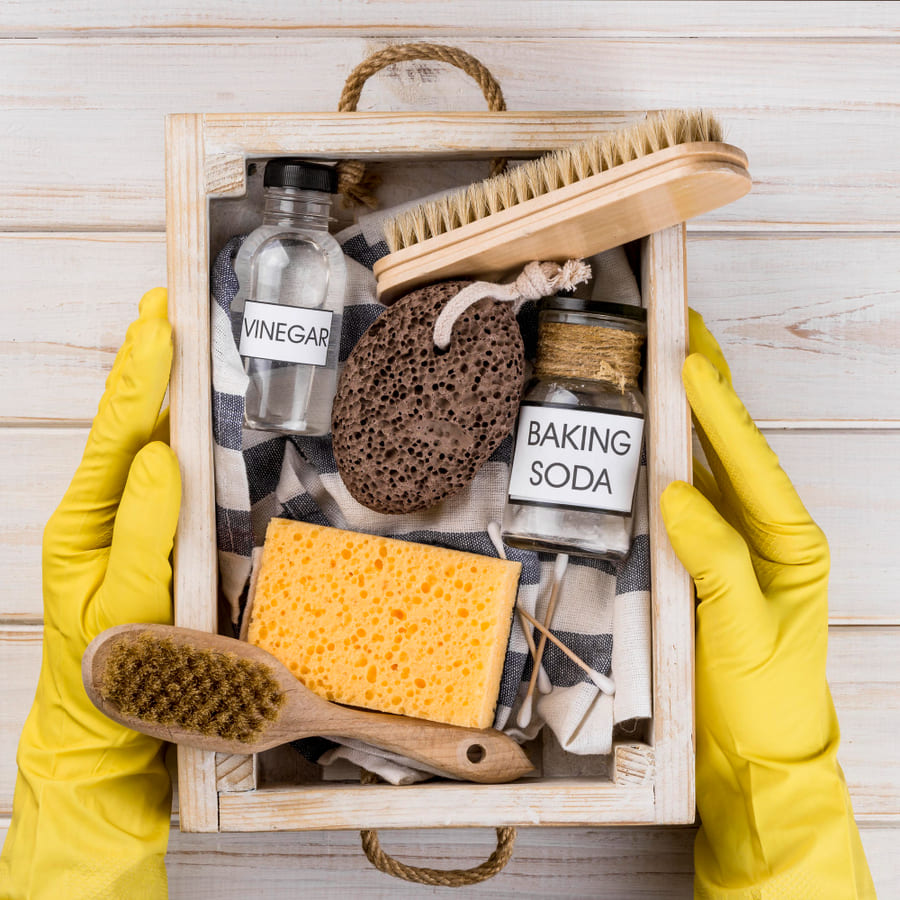
Making your own cleaning products is a triple win. You get better health, better cost, and better for the earth. By making your own cleaning products, you have a complete understanding of what’s in them. It’s nice to not see vague words like “fragrance” or words you can’t even pronounce. Since vinegar, baking soda, and castile soap, are literally pennies per use, you will definitely see your cleaning costs drop significantly.
- Health – No nasty chemicals or fumes, plus much more gentle on your skin and lungs.
- Cost – Cleaning essentials like vinegar can be purchased for 5 – 15 cents a batch, while a tiny bottle costs $3 -5 from the supermarket.
- Environment – Your end product is made with biodegradable and or plant-based materials that are made to naturally break down.
- Peace of mind – Homemade cleaning products are good for an allergy sensitive household.
And if all these points aren’t enough, isn’t there something nice about making something useful for yourself and knowing you are alleviating plastic?
Ingredients for DIY Cleaning
Before you dive into the recipes, you will want to ensure you have the following pantry staple items. Each will have its own cleaning, deodorizing, disinfecting or therapeutic qualities, and will all have a place in your DIY cleaning kit.
Most of the times these are inexpensive, easily found, and able to be used for a variety of jobs around your home. Of course! buy in bulk and store in airtight containers so you always have these items on hand for mixing up new batch of solutions.
- White vinegar – Naturally acidic, cuts through grease, works to dissolve mineral deposits.
- Baking soda – Mild abrasive, deodorizer and works to dissolve grime.
- Castile soap – vegetable based surfactant that cuts through dirt without suds.
- Lemon juice – Gives fresh scent, naturally has bleaching qualities.
- Hydrogen peroxide – Colorless disinfectant. Safe and effective alternative to bleach.
Where to find:
- Grocery stores/big box stores – vinegar, baking soda
- Health food stores or online – castile soap, essential oils
- Drug stores – hydrogen peroxide, rubbing alcohol
Simple DIY Cleaning Recipes
With your ingredients, get started with these five recipes. Each recipe has the same format, mix, spray or scrub, and wipe, and will produce brilliant results without harsh chemicals.
1 – All-Purpose Cleaner
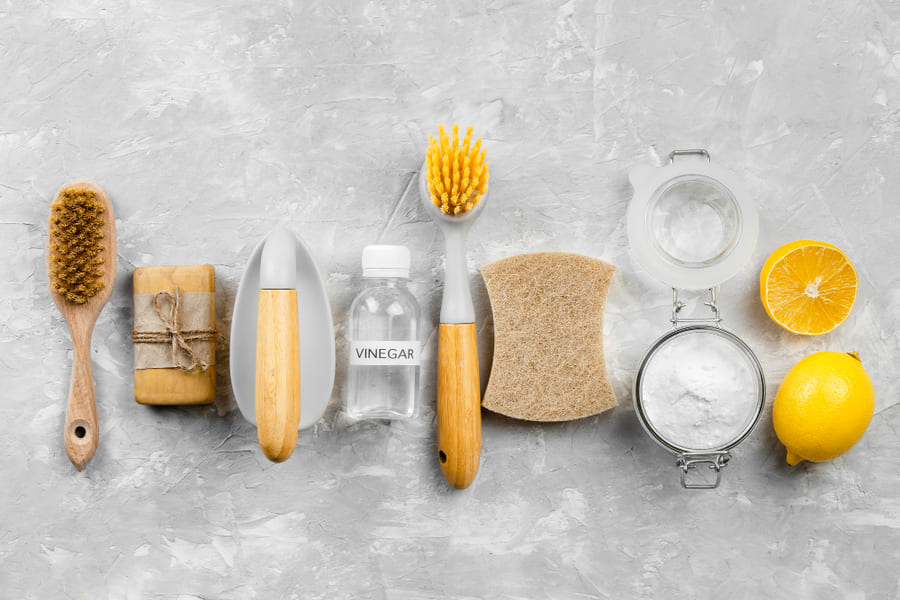
This cleaner is made with white vinegar and water, equal parts, in a glass spray bottle, then you would add 10-15 drops of your favorite essential oils (the best ones to use are lavender and lemon). You will want to shake it gently before use, spray onto countertops, tile and sealed wood surfaces, and wipe with a microfiber cloth for a fresh shine, with no streaks.
This solution should stay good for about a month when stored in a dark, cool place, but DO NOT USE this solution on natural stones like marble or granite, the vinegar will etch the finish.
2 – Glass and Mirror Cleaner
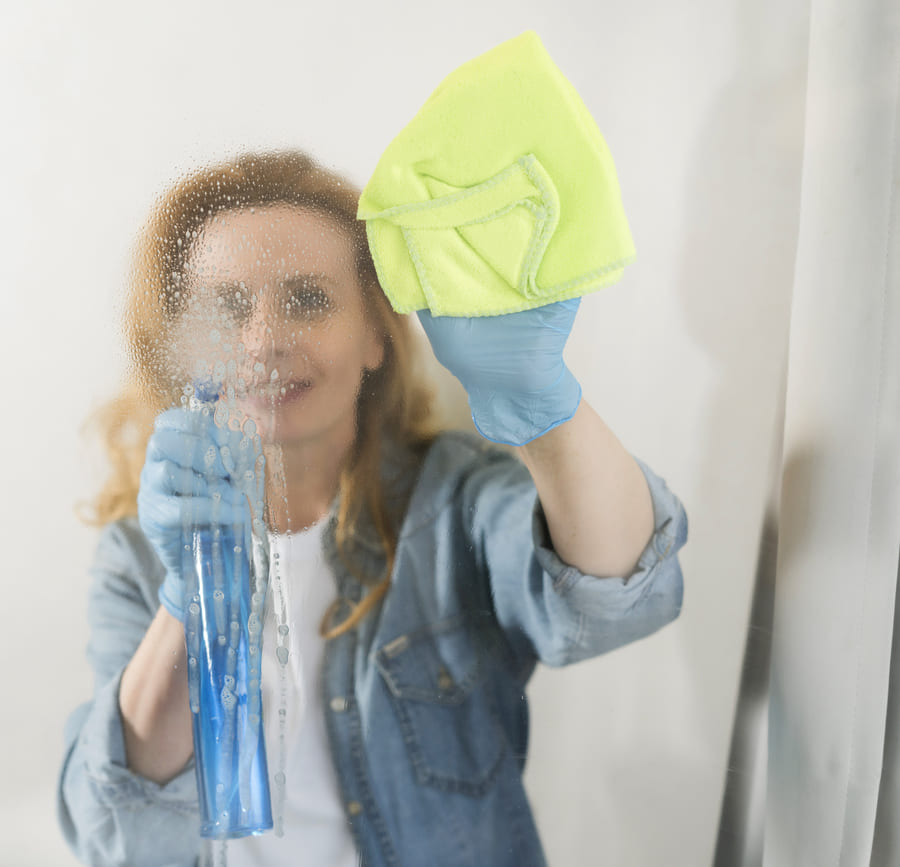
Combine two cups of water, a half cup of white vinegar and quarter cup of rubbing alcohol. After everything has been mixed well, pour the ingredients into the spray bottle and spray on the mirrors or glass.
Using a crumpled newspaper, or a towel that will not leave lint, wipe the mirrors and windows to a perfect shine. Your glass and mirrors will be streak free. The alcohol also helps the cleaner dry quickly while the vinegar cuts grease and dirt. You can buff the edges of the mirrors by hand after they dry to get that extra shine.
3 – Natural Disinfectant Spray
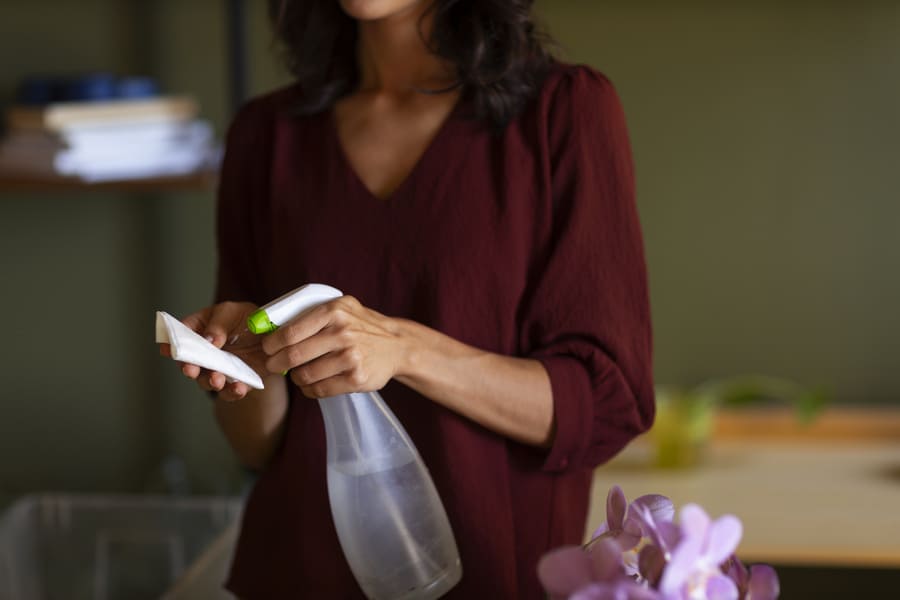
In a dark glass bottle, combine one cup distilled water, a quarter cup of hydrogen peroxide and 10 drops tea tree oil. Shake before each use and spray the mixture on your high touch surfaces, knobs, light switches, appliance handles and allow to sit for at least one minute before wiping clean. Store your bottle out of sunlight, to maintain effectiveness, and discard it after two weeks if it shows any signs of discoloration.
4 – Bathroom Scrub
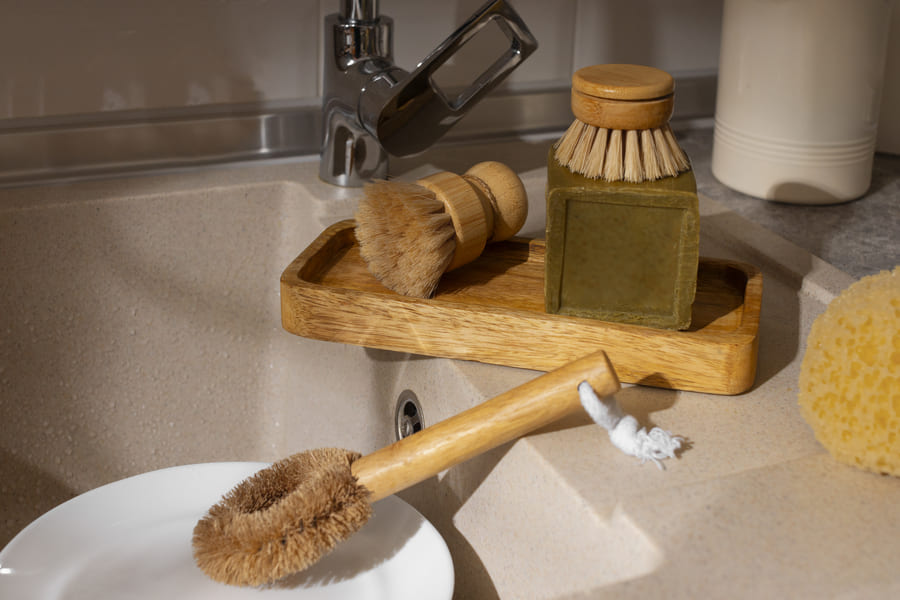
Mix 1/2 cup of baking soda with enough liquid castile soap to form a very thick paste, then if you like kick it up, add 1 tablespoon of lemon juice. Use a sponge or an old toothbrush to apply some of the paste to sinks, tubs, or tile grout, gently scrub and rinse. The baking soda will lightly abrade and pull stains without scratching the surface and it will leave a fresh and clean lemon scent.
5 – Floor Cleaner
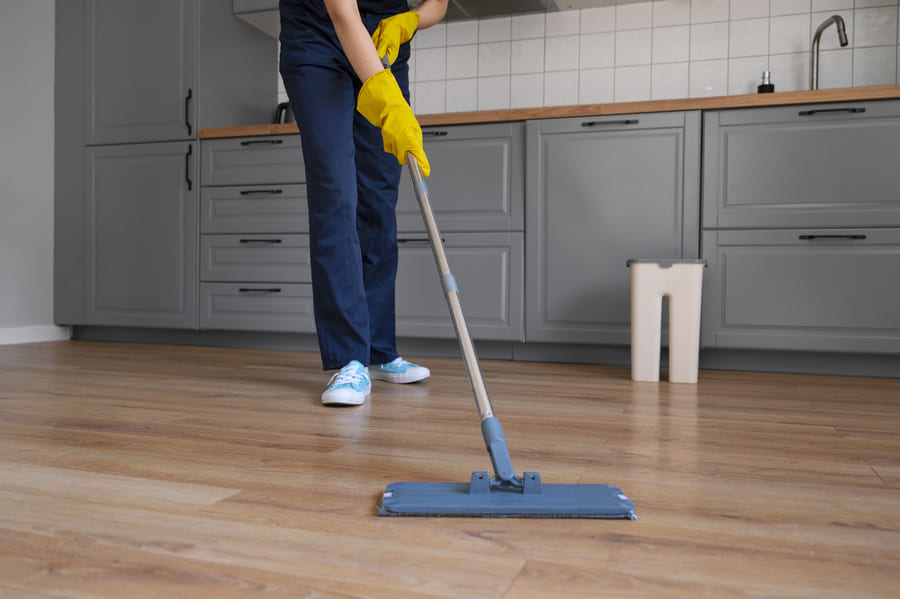
To use this vinegar solution, simply fill a bucket with a gallon of warm water, stir in 1/2 cup of white vinegar and 5-10 drops of eucalyptus or peppermint essential oil and mop like you normally do.
Allow the floor to air-dry, but be sure to wring your mop out very well so that there are not any puddles left on the floor surface. You can make it an even more disinfecting solution than the vinegar can do alone you can replace out the essential oil for 1/4 cup of vodka.
Conclusion
Opting to create your own cleaning products is not simply a fun DIY project, but a conscious decision for the health and safety of your family, for the health of your bank account, and as a bonus, for our planet. In using vinegar, baking soda, and essential oils to make your products, you will decrease the number of toxic chemicals in your home, decrease the waste of plastic containers from your cleaning supplies, and save an insane amount of money every year on cleaning supplies.
So, are you jumping on the natural cleaning products bandwagon? How about trying to make one recipe this week? Get some small labels for your bottles, share it with your friends, and see how much cleaning you can do with natural ingredients!

Numrah Fareed is a freelance writer and home organization enthusiast with a passion for practical, eco-friendly living. When not typing away at her desk, she’s experimenting with DIY cleaning hacks and helping readers simplify their routines one tip at a time.
